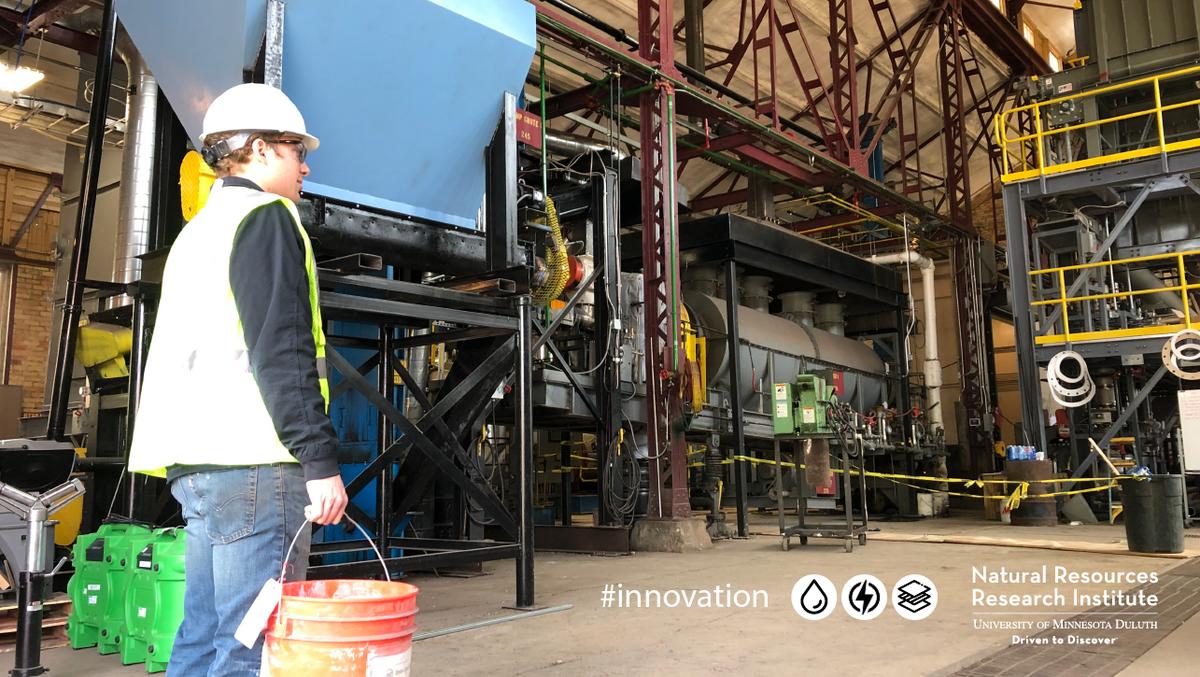NRRI leadership put a new vision in front of institute staff: Discover the economy of the future. But what does that really mean? How is this relevant to Minnesota? And what can NRRI do to achieve that vision? Four NRRI leaders weigh in.
What does the “Economy of the Future” mean to you?
LUCINDA JOHNSON, Director, Water Research: The economy of the future is resilient, able to pivot, and flexible. We have to face the reality that the climate is changing which may be beneficial to some sectors -- tourism in northern Minnesota, for instance -- but it will challenge the economy in other ways.
STEVE BERGER, Director of Operations: The economy is something society creates by placing value on the goods and services we receive. The economy of the future is a continuation of the present economy, influenced by consumer behavior and innovation… hopefully more aligned with the consequences of resource extraction.
TIM WHITE, Manager, Business Development: I see it as the triple bottom line – finding the balance between people, planet and profit. That’s really the only sustainable future for Minnesota.
KEVIN KANGAS, Director, NRRI Coleraine: This new vision is very consistent with the mandate we were given by the Minnesota legislature in 1983. Our clients need us to be a forward-thinking organization. We’re charged with developing innovations to help business and industry adapt, survive and hopefully grow. Discovering the economy of the future brings us back to those fundamentals.
What challenges does this vision address?
BERGER: In Minnesota, we should be perfecting the most ecological way to extract the resources demanded by society with a willingness to pay the price for doing it right. If we look holistically at our extraction economy, we have to plan for the future.
KANGAS: Existing industries are challenged by limited financial resources to do research. They must focus on the here and now and struggle to find time to get “outside the box,” do things differently than they’ve always done it. NRRI’s vision is all about getting outside the box.
JOHNSON: A good example is our Minnesota mining and forestry industries. How will they persist under climate change? Forests are transitioning and the species moving in are less valuable. As our climate produces bigger rain events, how will that challenge the mining industry? Discovering the economy of the future is really about planning and preparing for it.
WHITE: We’re blessed and cursed in Minnesota with the natural resources available. But our vision is to make an impact with the United Nations Sustainable Development Goals. And these are big, audacious goals. But that’s where we’re headed. We know how important we are to Minnesota but we also want our work to be important globally.
Why NRRI? How is NRRI’s vision being carried out?
WHITE: NRRI is unique in Minnesota as an applied, integrated research institute that can help partners commercialize important technologies. One example that I’m really passionate about is helping commercialize biochar applications in the state. Biochar has the potential to be a triple bottom line win for northern Minnesota. It’s an important climate strategy, can bring jobs and boost the economy.
KANGAS: The work we’re doing around high value iron products is another example. It will enable the iron ore and steel industry to continue its transition to electric arc furnaces, which are more efficient than blast furnaces. But is there a better way to make steel that we haven’t discovered or commercialized yet? Can we lower cost even more? Lower carbon and other emissions?
JOHNSON: I always go back to the quote by former U.S. Senator Gaylord Nelson: The economy is a wholly owned subsidiary of the environment. I don’t think there’s any other group in the state working along the entire continuum – from protection and conservation, all the way to remediation and new product development. The breadth of what we do allows us to answer questions that nobody else is tackling.
BERGER: The economy of the future is inevitable. It’s going to happen. But if we think about it as a series of decisions, that’s where NRRI fits in. Optimal decision balancing, weighing the pros and cons… NRRI helps decision makers make informed, better decisions. The economy of the future will be influenced by the decisions made today.
